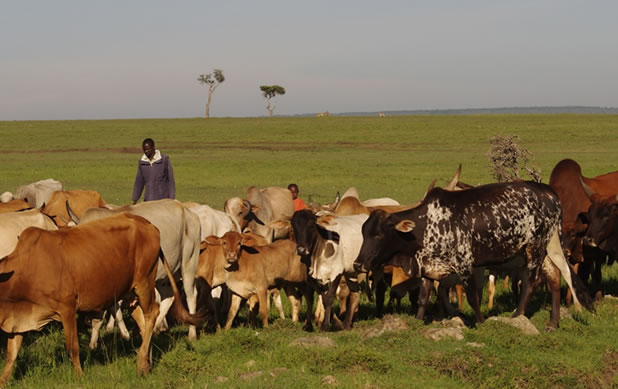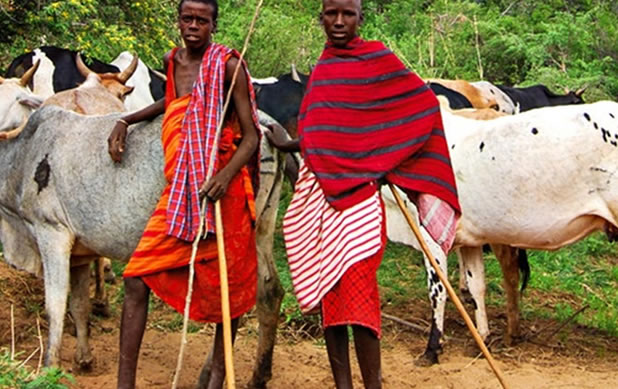April, 2003 Proverb: “Use of brains begets wealth.” – Sheng (Kenya)
Akili ni mali. (Swahili)
Use of brains begets wealth. (English)

Sheng ( Kenya ) Saying
Background, Explanation, Meaning and Everyday Use
The youth subculture in Nairobi, Kenya has coined “Sheng” as a common language of interaction among them. The word Sheng has it origins in the 1970s to capture the then new youth language of Nairobi. It was a blend of Swahili and English. It is the short form of Swahili and English, hence Sheng. Later it incorporated other local languages but the name of the new blend remained the same. Notice that the Swahili part of the formation of the word is at the front, meaning that Swahili contributed more words and phrases in the new language. It is thought to have originated in Nairobi Eastlands Estate. Later in the 1990s the youth from the middle class estates of Nairobi used a different form of this language with English contributing more words and phrases so this form was given the name Eng-ish. However this form did not catch on and was “eaten” by the Eastlands Sheng which is the form that was commonly used and that spread to Kenya’s main cities and towns.
This language is a blend of Swahili, English and other local Kenyan languages (such as Kikuyu, Dholuo, Kamba, etc.). It started in the 1970s, picking up momentum in the 1980s and 1990s. This unique language has been attributed to the language complexity in Kenyan cities that attracts various languages. It has also been seen as the youth’s attempt to carve out a niche for themselves, give themselves a special identity and communication style and mark out how distinct they are from the older generation of their parents. In the emotional realm of ethnicity, the Sheng language has been seen as an answer to the negative notions of ethnicity in urban areas given that no one ethnic group is able to identify with the language.
 The new Sheng sayings are popularly used in hip hop songs in Kenya. Today a popular song is Unbwogable which combines English and the Dholuo word “bwogo” (“to scare”) so a good translation is [We Are or I Am] Unscareable/Fearless/Unbeatable. It was used in the December, 2002 political campaign as a rallying cry for the National Rainbow Coalition (NARC) candidate Mwai Kibaki who was elected the new President of Kenya. The song has entered into everyday conversation as a popular saying. So to the question “Are you scared?” the answer is: “We’re unbwogable.” In fact this Sheng word “unbwogable” has now taken on a life of its own. So newspaper headlines refer to the new Kenyan Government Cabinet or Kenyan sports teams as “unbwogable” or unbeatable.
The new Sheng sayings are popularly used in hip hop songs in Kenya. Today a popular song is Unbwogable which combines English and the Dholuo word “bwogo” (“to scare”) so a good translation is [We Are or I Am] Unscareable/Fearless/Unbeatable. It was used in the December, 2002 political campaign as a rallying cry for the National Rainbow Coalition (NARC) candidate Mwai Kibaki who was elected the new President of Kenya. The song has entered into everyday conversation as a popular saying. So to the question “Are you scared?” the answer is: “We’re unbwogable.” In fact this Sheng word “unbwogable” has now taken on a life of its own. So newspaper headlines refer to the new Kenyan Government Cabinet or Kenyan sports teams as “unbwogable” or unbeatable.
In this Sheng language youth coins words and phrases from various languages and in the process create an entirely new vocabulary. Hence we have such words as oshago (up-country), a blend of Dholuo and Kikuyu and such nouns like Mato for Martin and Jamo for James. In the case of the Sheng saying above, the word ndonge is equated to the Swahili word mali and the English word wealth. Indeed, this saying is a reinvention of the Swahili proverb akili ni mali (use of brains begets wealth). In its everyday use the Sheng saying akili ni ndonge is used by youth to urge one another to work hard and think creatively so as to identify opportunities and consequently to earn a means of livelihood
Biblical Parallels
The parable of the talents in Matthew 25: 14-28 and the parable of the ten minas (gold coins) in Luke 19: 11-27 captures the spirit of this saying. The two biblical texts emphasize the creative use of our talents especially our mental faculties. They also point out the possible rewards of these efforts and the potential losses we might incur if sound reasoning and decision making are not emphasized. The positive attitudes and values for creative work are also underscored in 1 Thessalonians 4.11 pointing out that besides material rewards there are also social rewards to get in the form of respect from peers.
Contemporary Use and Religious Application
This Sheng saying is used to point out that there are opportunities galore right in out midst. That if we look keenly and use our talents and abilities (both physical and mental), we are bound to benefit immensely, far beyond just meeting our basic needs. The Kenyan saying can also be used in church youth ministries such as counseling especially in imparting positive work attitudes to youth. The creative new wave of Christian hip hop music which has been borrowed is a good example. Rather than indulging in illicit activities like drug taking, the youth are engaged in Christian music which has become a gainful employment for many in Kenya. The saying can therefore be used to urge the youth to open their eyes wide and think broader than just eking a living and, in the process, serve the Lord better.
Note: For more information on Kenyan contemporary sayings such as Sheng, see the new ebook that will be posted soon on this website.
This is Saying No. 11 in Hakuna Matata: A Collection of Contemporary Nairobi Sayings With a Commentary. Collected by Joseph Kariuki. Endangered African Proverbs Collections: A Continuation of the African Proverbs Project. Nairobi, Kenya: Privately printed, June, 2003. 27 pages.
Joseph Kariuki Muriithi
Assistant Moderator, African Proverbs, Sayings and Stories Website
Nairobi, Kenya
E-mail: jkariuki@umsg.org
